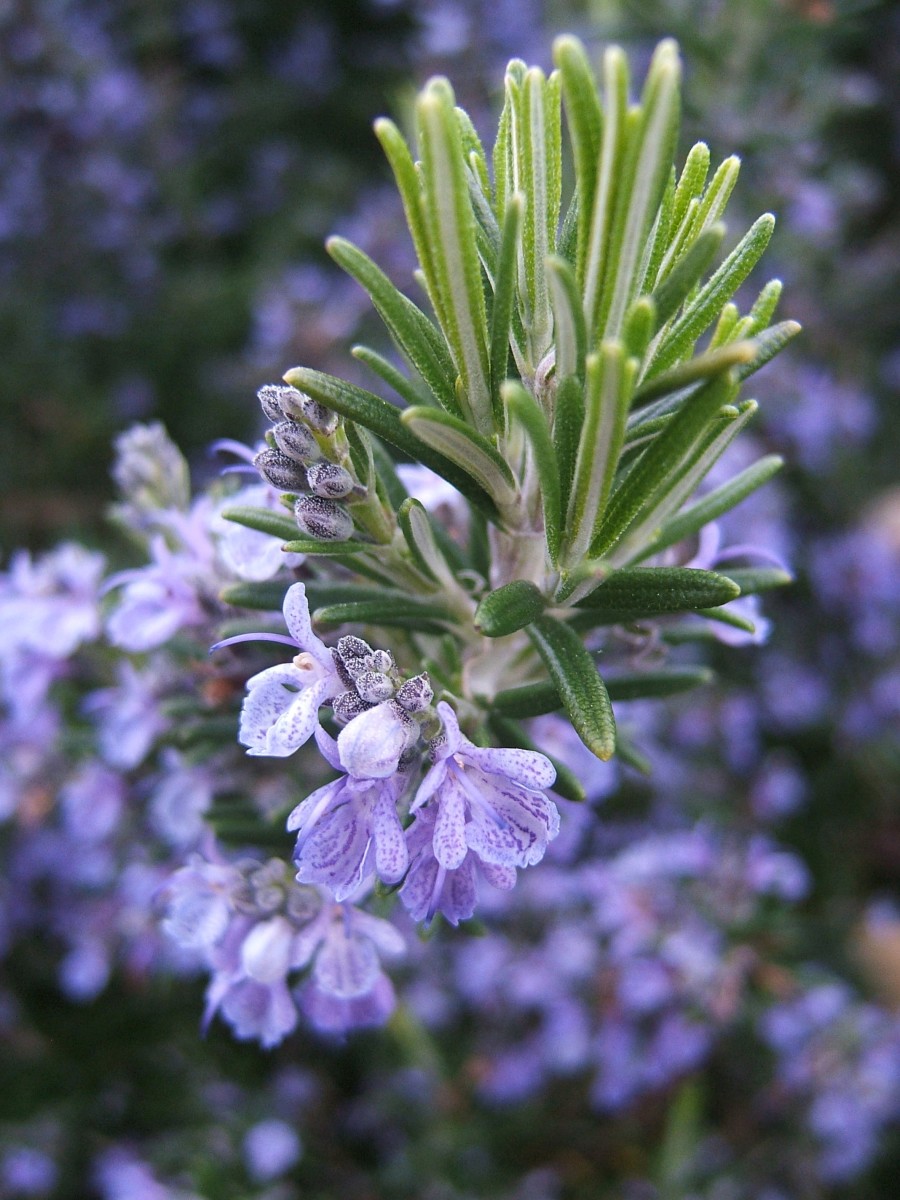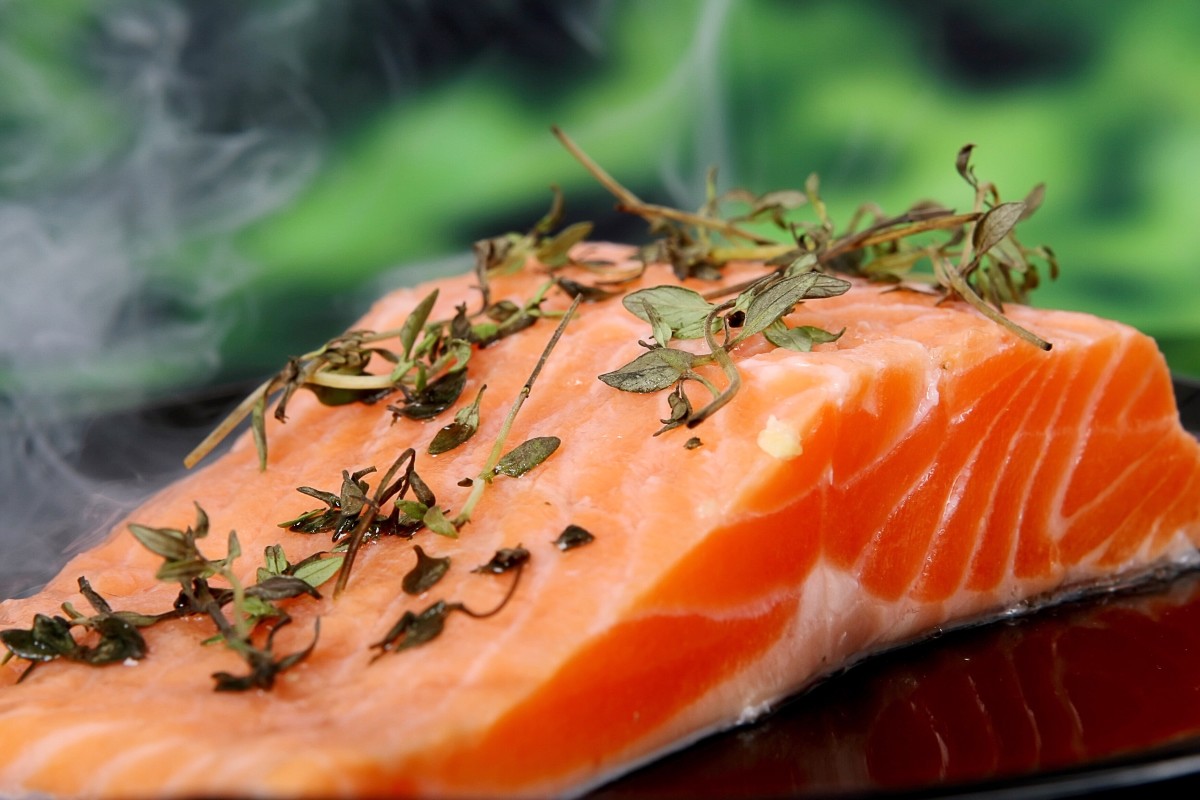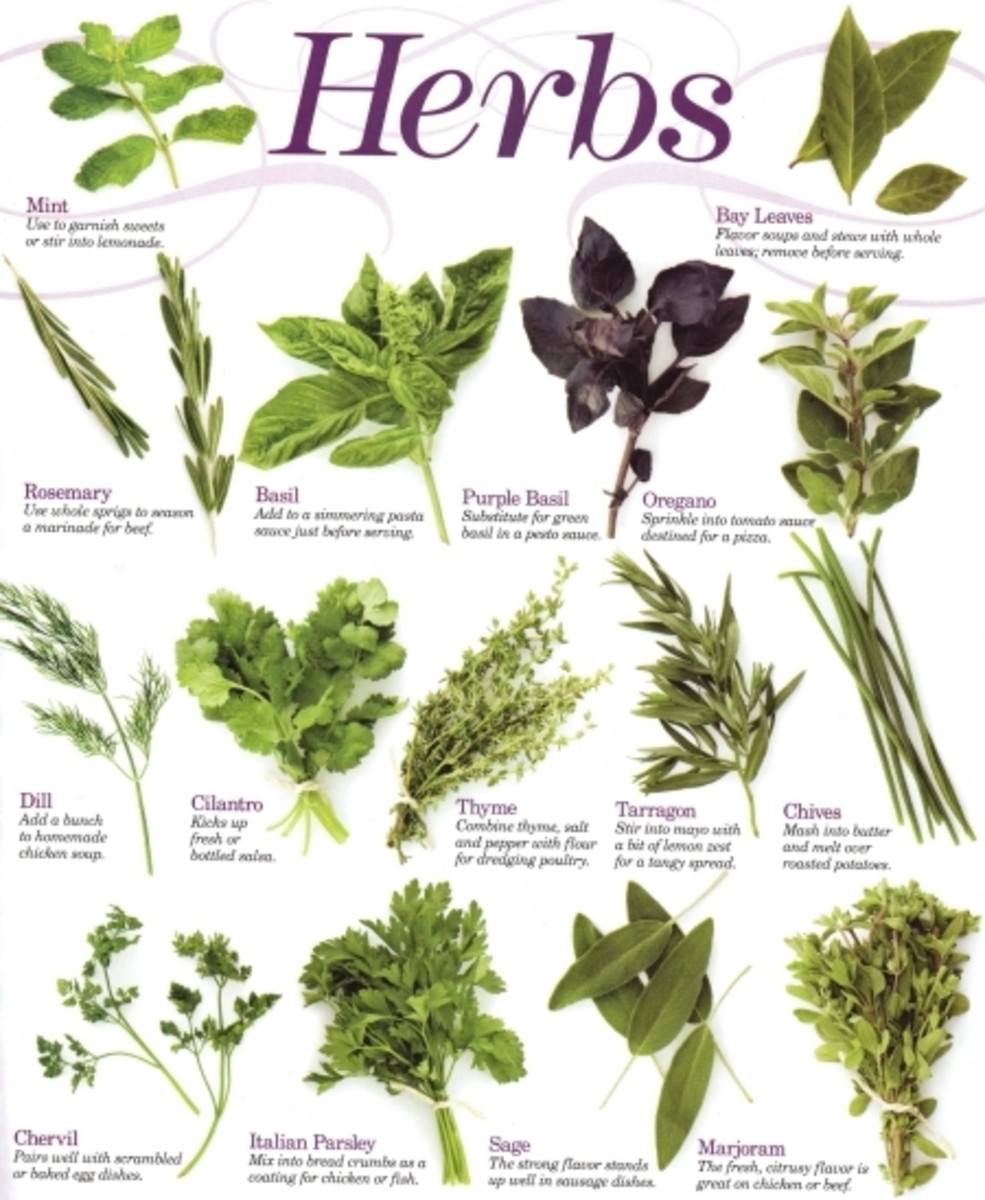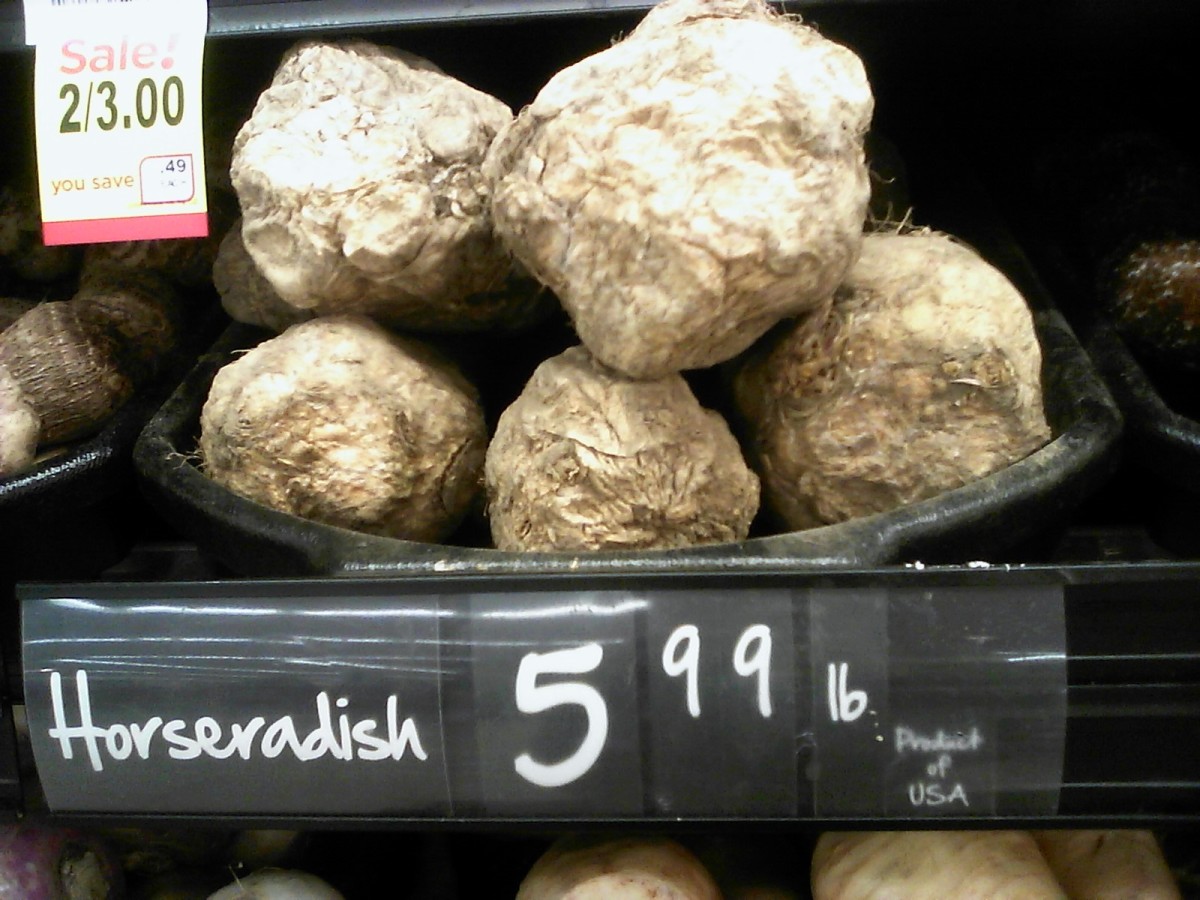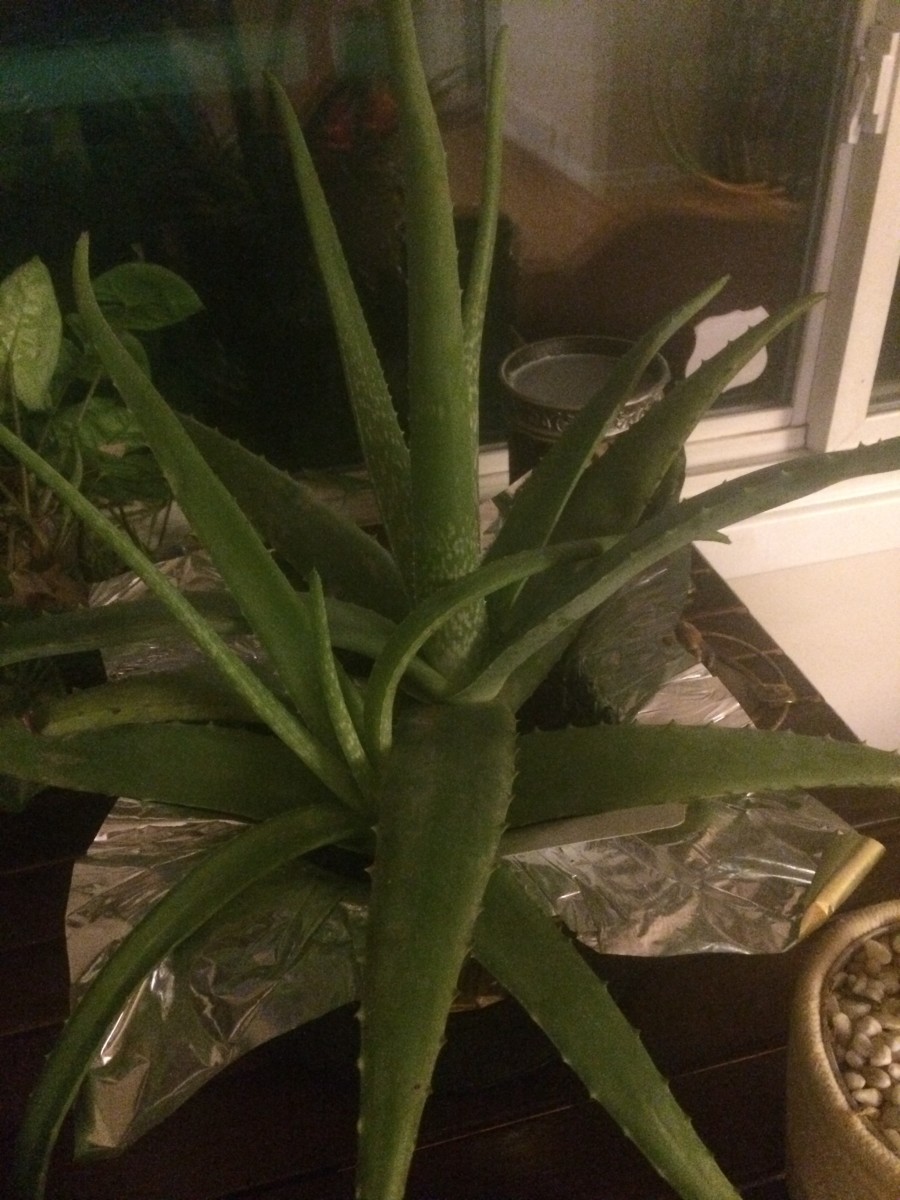Where Did It Go? Herbs for Improving Memory
I'm pretty sure we all have those days where it it feels like we would lose our heads if they weren't attached. When you have kids that contribute to the chaos, it seems like it happens more often; usually because someone else has moved what you are looking for. There are times though, that it just seems to have disappeared off the face of the Earth only to reappear when you no longer are looking for it, or don't need it anymore. And most of the time it's in a place you were sure you had already looked. I'm not sure this issue ever disappears, but there are herbs that can help improve memory.
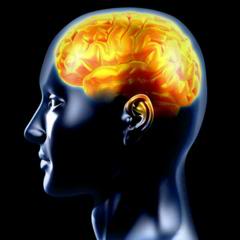
Why do they work?
One thing I have noticed, in both my research and practice, is that all the herbs for improving memory are also ones that improve circulation. This makes a lot of sense when one thinks about it. The brain needs oxygen to work properly, well it needs it to work at all but that is beside the point. I remember, in both middle school and high school science and health classes, the teachers going on about how the blood carries oxygen and nutrients throughout the body (including the brain) and then carries away waste material from cellular processes. Most of us likely learned similar things, but how much sank in at that age? It is that process though, that is the reason these herbs work and have been used to aid or improve memory for eons. When the circulation is there, the brain (and the rest of the body) works better because of the increase in oxygen availability. What about the nutrient part though, you ask? Herbs have that covered as well. They have a whole host of vitamins and minerals that the body absorbs as they are digested. Each herb has different levels of certain vitamins and minerals, just like vegetables do, which is part of why they have different effects on the body. Most herbs also have many actions. Depending on what you have going on, you can choose one or two herbs to boost multiple body systems, which creates a holistic healing effect.
Have you ever used herbs to help with memory?
How long does it take to work?
How long it takes before a difference will be noticed depends on the person. The most common recommendation is to take it for at least three to six months. A year or more is preferable. Why that long? Because it takes time for tonic herbs to build up necessary nutrients in the system. Nutrients that are responsible for the desired actions are immediately used for whatever the body deems is more important. The body automatically uses nutrients for whatever is the most vital first. It will even break down other areas of the body to get the nutrients that it needs. Unfortunately, since many foods available today are nearly devoid of nutrients, the body is working overtime to try to find what it needs for vital processes. If the body is in a state like that, it only makes sense that it will take longer to notice a difference. The body first has to have all the nutrients needed for vital functions. This is one reason it's recommended that herbs, especially tonic herbs, are to be taken in small amounts over longer periods of time. From personal experience, it may only be when someone else mentions it that you realize that there has been a difference. My mother experienced this with using herbs for her allergies. This was because the herbs she was using were for the hot flashes that were the main problem she was dealing with. The effect on her allergies was a side benefit. She did notice that once she had been taking them for a couple of years, she could take longer and longer breaks between using the herbs and still not have the symptoms. Even when they did start to show up they weren't as severe and it less time for them to go away again when she started drinking the tea again. Not being a doctor I can't say for sure, but to me that says that the symptoms went away faster and were less severe because her body wasn't as deficient in nutrients as it had been in the beginning. Our bodies have an amazing ability to heal themselves as long as they have the building blocks to do so.
Okay, so what are the herbs for memory?
As I mentioned above, there are many of them. Some are not obvious because it's not the main application they are most commonly used for. Others are well known for aiding the memory. It would take an entire book to list all the possibilities. Since I don't have room for a book here, I'll start with five of the more well known ones. A few others that could be used due to their actions but are not touted as being for memory follow.
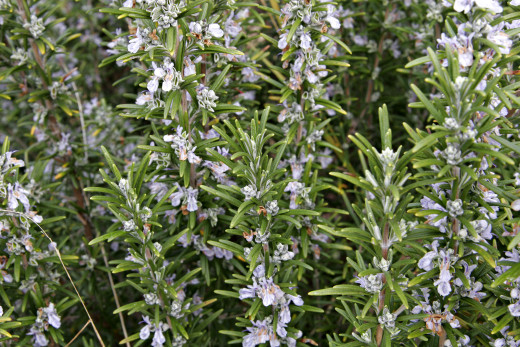
Rosemary (Rosamarinus officinalis)
Rosemary has long been used for memory. We've all probably heard the saying “rosemary for remembrance” at least once in our lives. This gives us a key to it's use for memory. Why would it be put into songs and poems, among other literature, so people would always remember it if it wasn't true? Rosemary aids memory by stimulating blood flow through the heart (which also helps the heart). This increases the supply of oxygen and nutrients to the brain. Even though it stimulates the circulation, it will also relax the nervous system. This action can aid memory because it's easier to concentrate when your mind isn't worrying about dozens of different things at the same time. It's much harder to focus if you are anxious or depressed or stressed. Just like it's harder if you are on a sugar or caffeine high where you feel like you are bouncing off the walls. Other benefits of rosemary that are indirectly related are it's antibacterial and antispasmodic properties. These improve lung function, especially during illness, so the lungs can take in more oxygen for the brain to use.
Memory Boosting Foods, Herbs (especially Ayurvedic), & Natural Supplements
Sage (Salvia officinalis)
The very name of sage clues us in to it's ability to aid memory. A sage person (according to the dictionary) is one who is very wise. In history, it was also used as a title to describe those who carried a great deal of knowledge and experience. How can anyone become such a person if they have a poor memory? Sage is a circulatory stimulant and relaxes peripheral blood vessels as well as having high amounts of nutrients, some of which are also antioxidants. It does have other actions though that require it to be used with care or avoided by people with certain conditions. Since it helps regulate blood sugar, diabetics should use extreme care or avoid it all together. It is also one to be avoided during pregnancy. In general, moderate use is recommended with sage. This means it's recommended to be taken no more than three times a day and for no longer than two weeks (taking it daily) at a time. After two weeks a break of the same amount to time is recommended before restarting it. One reason this is recommended is to give the body a chance to adjust to the changes it has made and to test out those changes.
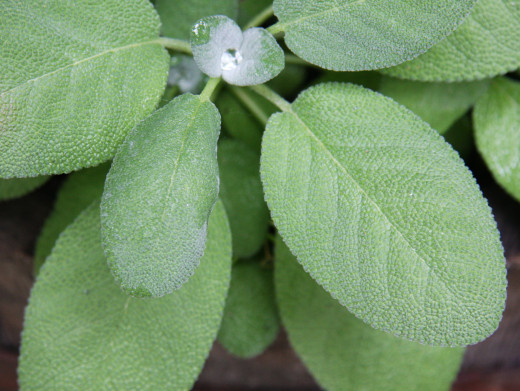
Hawthorn (Crataegus oxycantha or Crataegus monogyna)
Hawthorn is a powerhouse for heart health, specifically circulation. This is what makes it so beneficial for the memory. Since it is a tonic that opens the arteries, it improves the circulation of blood through the body. This in turn improves absorption of oxygen, regulates the heart rate, and stabilizes blood pressure. It also relieves stress on the nervous system. These actions help clear fuzziness and “cobwebs” from the mind and aid in concentration, focus, and memory. Are you noticing the pattern here?
Ginkgo (Ginkgo biloba)
Ginkgo, like hawthorn, is a major heart and circulatory tonic. It is good for nearly everything circulatory system related. It is also being studied for it's ability to aid in reducing the symptoms Alzheimer's patients experience. With it's effect on the heart and circulatory system, anyone taking heart medications should be careful when taking it as it could either enhance or nullify the pharmaceuticals.
Do you use herbs (for anything other than cooking) or herbal remedies?
Gotu Kola (Centella asiatica)
Gotu Kola is another herb that is well known for it's memory improving functions. “Brain food” is one term associated with it. It not only improves circulation (which improves oxygen uptake) but also stimulates the central nervous system and cleanses the blood. It stimulates the pituitary gland and thyroid as part of it's ability to balance hormones so it should be used with care for anyone taking medication for either, but especially anyone who has hyperthyroidism whether they are taking medication or not.
Other herbs
Blessed thistle (Cnicus benedictus or Carduus benedictus), butcher's broom (Ruscus aculeatus), thyme (Thymus vulgares), and yerba santa (Eriodictyon glutinosum) are all used for circulation issues. Burdock (Arctium lappa) is a blood purifier which would help clear out any toxins built up in the tissues. Plantain (Plantago major) is both a detoxifier and a lung tonic. It will help clear out toxins interfering with concentration and memory as well as improving lung function to increase the intake and uptake of oxygen.
Remember that herbs are medicine too. They are the foundation that all pharmaceuticals are made from and because of that they should be used with care. Always research any herbs that you want to use. When researching or using herbs, always check the official name (Latin binomial) to make sure that you are getting the correct herb. Many herbs can have the same common name but will have completely different properties. Two books I highly recommend, although the second one is out of print now, are 20,000 Secrets of Tea by Victoria Zak and Herbal Remedies by Christopher Hedley and Non Shaw.
Disclaimer: This information has not been approved by the FDA. It is meant for informational purposes only and not meant to treat or diagnose any illness or disease. Always talk to your doctor and/or naturopathic physician before using herbs, especially if you are currently taking medication.
This content is accurate and true to the best of the author’s knowledge and does not substitute for diagnosis, prognosis, treatment, prescription, and/or dietary advice from a licensed health professional. Drugs, supplements, and natural remedies may have dangerous side effects. If pregnant or nursing, consult with a qualified provider on an individual basis. Seek immediate help if you are experiencing a medical emergency.
© 2014 Jody Cope


